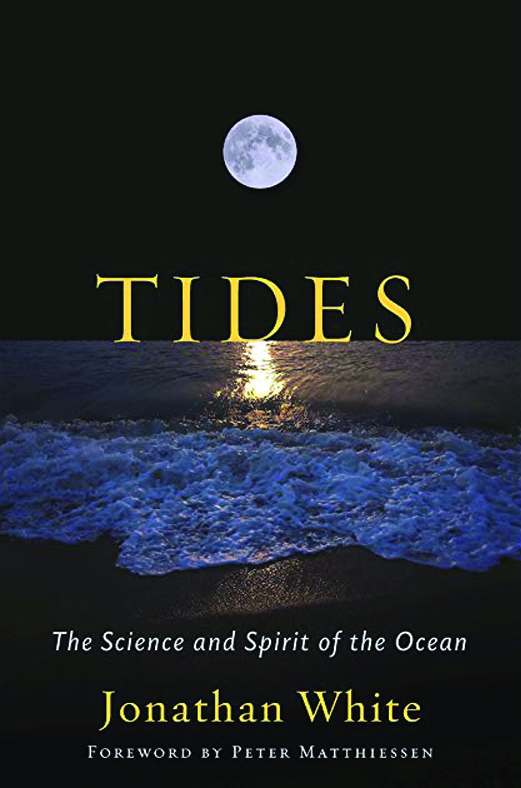
Tides: The Science and Spirit of the Ocean by Jonathan White
Tides have intrigued and baffled scientists, mathematicians, and sailors for all of recorded history. In Tides: The Science and Spirit of the Ocean, Northwest author Jonathan White takes his fascination with the movement of the oceans and gives us a book that is one part science, one part history, and one part adventure story.
We in the Northwest take tides for granted, and most of us operate with an elementary school science level of understanding of how they work. Most of us know that the gravitational pull of the moon is responsible for the twice daily rise and fall of the water, but that’s about it. White spends some pages explaining the science of it all, but always in context of a larger story he is telling about the world’s oceans and the people who have sailed across them or lived on their shores throughout history.
This book teaches us more about science, history, and geography than it does about tides themselves. Why did the tides – so cyclical and predictable – take so long to be married to astronomy and the other sciences of the ancient world? In part because those otherwise brilliant ancient minds lived in a part of the world that experiences a miniscule tidal exchange. In contrast, native cultures in places like the Pacific Northwest have had a basic understanding of tides for as long as they have been on the earth. Today we look at tide tables to know when high or low water will be. Native cultures used tides to tell time.
It is no secret to those of us who ply the waters of the Pacific Northwest that moving water is a major concern, and White’s chapter on the tidal flows of this area is worth the price of the entire book. His first-hand accounts are married with historical records, interviews, and lore to create what is for me a wonderful reminder that no element of life on this planet exists in a scientific vacuum. The movement of the ocean’s water affects everything: sea life, weather, shipping, recreation, science, religion, travel, and education.
White travels the world in this book. In China, he witnesses firsthand the world’s most consistent and terrifying tidal bore: a massive and swift moving wall of water that – twice every day – rushes up the Qiantang River near Hangzhou with a pulsing wave over 20′ tall. Says White, who joined in on the foolhardy game of outrunning the bore and scrambling up the walls of the dyke built to control its fury, “I’ve never seen a tide so quick, so merciless. On most coasts, it takes six hours for a tide to come in; here it takes six seconds.”
He travels to the Bay of Fundy, which at almost 55′ has one of the world’s largest tidal exchanges. I try to wrap my head around what Deception Pass would look like with a 55-foot exchange and nothing computes. It seems impossible.
The book also skillfully touches on what we all know will be world-changing issue for generations to come. I am writing this from Seattle’s Bell Harbor Marina. It is a normal morning high tide and the sea level is a mere seven feet below Alaskan Way. As sea levels rise over the next century, waterfront cities like Seattle (built on fill, protected by a sea wall) will face likely insurmountable civil engineering issues and costs. Already, all around the world, we see the powerful effects of rising seas and warming water. Hurricanes Sandy and Katrina had record-breaking storm surges (12.5′ and 34′ respectively) due not just the power of the storm. Higher high tides, warmer water, and changing ocean currents all played a role.
As White points out, had Sandy hit New York seven hours earlier the tidal surge would have been at least four feet higher. Sandy flooded over 50 square miles of the city as it was. The section of the book devoted to rising tides is not presented as a lecture or a political stance, though one wonders how the scientifically provable fact of rising sea levels can be seen as anything but an international emergency. Like the rest of the book it is told as a story, with first-hand experience, scientific data, and historical perspective.
Tides is an exceptional book. White’s personal and academic backgrounds make him perfectly suited to be the one to tell this story. It belongs on your bookshelf.